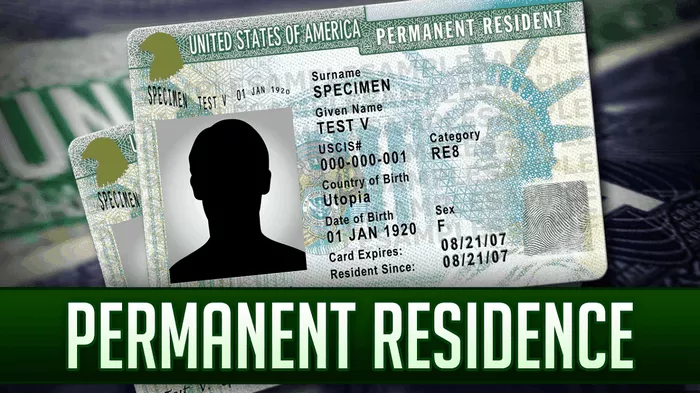Acquiring a United States Green Card, granting lawful permanent residency, is a coveted milestone for individuals seeking to establish a life in the land of opportunity. However, the journey toward obtaining this prized document is often fraught with complexities, uncertainties, and formidable challenges. From stringent eligibility criteria to protracted processing times, the pursuit of a green card demands patience, perseverance, and meticulous attention to detail. In this comprehensive exploration, we delve into the multifaceted landscape of U.S. immigration, shedding light on the hurdles and realities encountered by aspirants on their quest for permanent residency.
The Foundation of Eligibility: Meeting the Criteria
At the core of the green card application process lies a stringent set of eligibility criteria that applicants must satisfy to be considered for lawful permanent residency. These criteria encompass diverse categories, including family-based sponsorship, employment-based opportunities, refugee or asylum status, and the Diversity Visa Lottery program. Each pathway imposes distinct requirements, necessitating thorough comprehension and adherence to specific guidelines.
For family-based sponsorship, individuals must establish qualifying relationships with U.S. citizens or lawful permanent residents, demonstrating familial ties through marriage, parent-child relationships, or sibling connections. Similarly, employment-based green cards necessitate sponsorship by U.S. employers, with stringent requirements concerning job qualifications, labor certification, and prevailing wage determinations.
Navigating the Quagmire of Immigration Policies and Procedures
Beyond meeting the foundational eligibility criteria, navigating the intricate web of immigration policies and procedures constitutes a formidable challenge for green card applicants. The U.S. immigration system is characterized by its labyrinthine bureaucracy, convoluted regulations, and evolving policies, rendering the application process arduous and daunting.
Changes in political landscapes and executive orders can introduce sudden shifts in immigration policies, impacting the prospects of aspiring green card holders. Heightened scrutiny, increased documentation requirements, and revised adjudication standards contribute to the volatility and uncertainty surrounding immigration proceedings.
Moreover, the sheer volume of green card applications inundates U.S. Citizenship and Immigration Services (USCIS) and Department of State (DOS) offices, leading to extensive processing delays and backlogs. For applicants, protracted wait times translate into prolonged periods of uncertainty, exacerbating the emotional and logistical toll of the immigration journey.
Financial Implications and Affordability
In addition to navigating bureaucratic hurdles, the financial implications of pursuing a U.S. green card pose significant challenges for many aspirants. The cost associated with application fees, legal representation, medical examinations, and supporting documentation can amount to substantial sums, placing a considerable strain on individuals and families.
For low-income applicants, the financial burden of the green card process may prove insurmountable, perpetuating socio-economic disparities and limiting access to legal avenues of immigration. Despite the existence of fee waivers for certain eligible individuals, the overall affordability of the green card journey remains a pervasive concern, underscoring the inequities inherent in the U.S. immigration system.
Legal Complexities and Compliance Obligations
Navigating the legal complexities of U.S. immigration law presents a formidable obstacle for green card applicants, particularly in light of evolving statutes, regulations, and judicial interpretations. The intricate interplay between federal immigration laws and state-specific policies adds layers of complexity to the application process, necessitating expert guidance and legal counsel.
Ensuring compliance with immigration laws and regulations is paramount, as even minor errors or omissions in documentation can lead to application denials, delays, or even deportation proceedings. From navigating the intricacies of visa classifications to understanding the nuances of adjustment of status procedures, applicants must meticulously adhere to legal requirements to enhance their prospects of success.
Navigating the Uncertainties of the Visa Bulletin
Central to the green card application process is the Visa Bulletin, a monthly publication issued by the DOS that governs the allocation of immigrant visas based on visa availability and priority dates. The Visa Bulletin categorizes applicants into preference categories, prioritizing certain groups such as immediate relatives of U.S. citizens or individuals with advanced degrees.
However, fluctuations in visa availability and priority date movements introduce a layer of uncertainty into the green card journey, with applicants often facing prolonged wait times due to visa retrogression or backlogs. Consequently, individuals may find themselves in a state of limbo, unable to progress in their immigration proceedings despite meeting all eligibility criteria.
Conclusion
The pursuit of a U.S. green card is undeniably fraught with challenges, complexities, and uncertainties. From navigating stringent eligibility criteria to grappling with bureaucratic hurdles and legal complexities, aspirants encounter formidable obstacles along their immigration journey. Despite the arduous nature of the process, countless individuals persevere in their quest for lawful permanent residency, driven by the promise of a better future and the opportunity to call America home. As policymakers and stakeholders grapple with immigration reform, addressing the systemic barriers and inequities inherent in the green card process remains imperative, ensuring that the American dream remains accessible to all who seek it.


